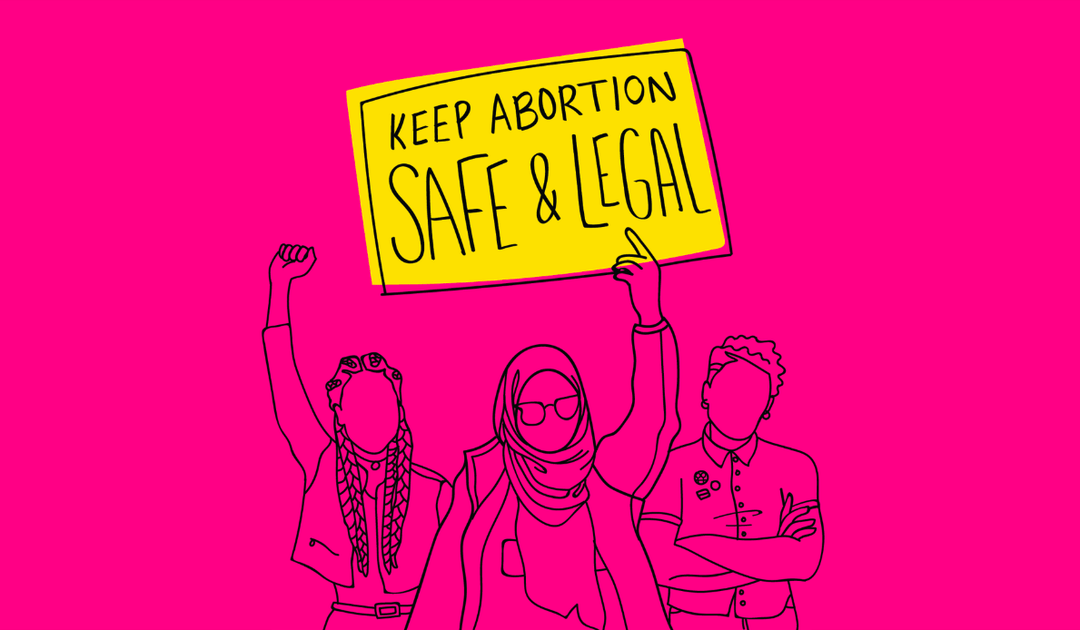The Covid-19 pandemic is instilling lockdowns and quarantines in the United States, so as non-essential businesses temporarily close for public safety, the question of “what is necessary” is being raised. Caught in this debate are abortion clinics, many of which are being scrutinized for their perceived non-essentiality. Time Magazine reports that the Texas Attorney General has gone as far as banning all abortions including those administered via pill, which has implications much beyond the current pandemic. Some argue that the services abortion clinics provide are entirely inessential to society right now and thus, unnecessary to remain open. However, the public must recognize the gamut of services provided by abortion clinics, as abortions are only a slim portion of reproductive health services.
One popular abortion clinic, Planned Parenthood, provides birth control, morning-after pills (for contraception after sexual intercourse), Sexually transmitted disease testing, internal and family medicine, HIV testing (an immunodeficiency virus), sexual education, cancer screenings, and more. Limiting or restricting these services altogether would be detrimental to the safety of many families who rely on such clinics. With already overcrowded hospitals in densely populated areas and many people being dissuaded to seek medical attention in fear of contracting COVID-19, severe illnesses may go untreated and undiagnosed with serious, potentially life-threatening conditions that could have been avoided. Additionally, some states such as Mississippi have only one abortion clinic due to frivolous and strict regulations, meaning that if the clinic closes, lower and middle-class citizens seeking abortions or other services abortion clinics provide may not have the financial means to travel out-of-state to receive them. Essentially, in closing abortion clinics during the pandemic and stay-at-home orders, the safety of many is greatly jeopardized. Most abortion procedures are contactless anyway, as procedures also involve prescription medications after a consultation, making it a low-risk visit.
On another note, some people deem abortion clinics, and specifically the abortions they provide as unnecessary regardless of this pandemic. They praise their closing because for religious or otherwise personal reasons they believe abortions are unethical. The First Amendment of the Constitution grants each citizen the right to believe abortion is unethical and express this view, and on the other hand, Roe v. Wade gives pregnant people the right to an abortion, but objectively speaking, facts and science should determine this contentious debate, not religion or belief systems. Ideally, abortion would not exist, as no pregnancies should be unwanted, caused by rape nor incestual intercourse, and fetuses along with their mothers shouldn’t develop life-threatening conditions that result in a termination of pregnancy. But unfortunately, these scenarios occur more often than one might think, so abortion is necessary in some cases. The Center of American Progress reports that there is a link between abortion restrictions and maternal mortality rates stating “South Carolina, for example, has 14 abortion restrictions […] In 2015, one-third of South Carolina had no dedicated health care provider, plus maternal mortality rates had risen 300 percent.” Simply put, the more abortions are limited, the more desperate women die trying to take care of themselves.
Furthermore, women sometimes don’t have the choice of being impregnated and are left with the responsibility of another human for at least nine months. These women may be financially insecure, especially given the economic recession caused by the pandemic, so they cannot afford to pay additional medical bills. Also, they may be very young, and thus not physically or emotionally mature enough to bring a fetus to full term. Forcing women who have undergone such trauma to relive it every day for nine months, and forcing them to pay for it is essentially a sentence to motherhood.
Abortions are sometimes entirely necessary for the safety of the mother, who may develop a condition resulting in death on part of the fetus or the mother. These rare yet real scenarios are simply a matter of life and death, and by restricting all abortions, these women are now in real danger and cannot receive essential healthcare. These complications are often detected far into the pregnancy, which is past the threshold of a typical abortion, meaning these women likely wanted their baby and now have to make one of the hardest decisions ever to limit suffering and save their own life. Instead of trying to save the “lives” of non-aware fetuses, those opposing abortion clinics and using Covid-19 as an excuse for closing them should instead be trying to save the lives of those with life-threatening conditions relating to pregnancy, rape victims, those who may go undiagnosed with a life-threatening disease, those most at risk for Covid-19, and those who are unnecessarily being put at risk due to lenient social distancing practices.
Bibliography
Abrams, Abigail. “COVID-19 Could Permanently Make Abortions Harder to Access Nationwide.” TIME Magazine, April 7, 2020. Accessed May 7, 2020. https://time.com/5816530/coronavirus-abortion-clinics-access/.
Harrington, Rebecca, and Skye Gould. “The number of abortion clinics in the US has plunged in the last decade — here’s how many are in each state.” Business Insider, February 10, 2017. Accessed May 7, 2020. https://www.businessinsider.com/how-many-abortion-clinics-are-in-america-each-state-2017-2.
Hersher, Rachel. “New York’s Temporary Overflow Hospitals Remain Underused Despite COVID-19 Crisis.” National Public Radio. Last modified April 7, 2020. Accessed May 7, 2020. http://npr.org/2020/04/07/829091975/new-yorks-temporary-overflow-hospitals-remain-underused-despite-covid-19-crisis.
Mccammon, Sarah. “Abortion In The Third Trimester: A Rare Decision Now In The Political Spotlight.” National Public Radio. Last modified April 30, 2019. Accessed May 7, 2020. https://www.npr.org/2019/04/30/718546468/opponents-fight-efforts-to-protect-late-term-abortion-rights.
“Our Services.” Planned Parenthood. Accessed May 7, 2020. https://www.plannedparenthood.org/get-care/our-services.
Ravi, Anusha. “Limiting Abortion Access Contributes to Poor Maternal Health Outcomes.” Center for American Progress. Last modified June 13, 2018. Accessed May 7, 2020. https://www.americanprogress.org/issues/women/reports/2018/06/13/451891/limiting-abortion-access-contributes-poor-maternal-health-outcomes/.

